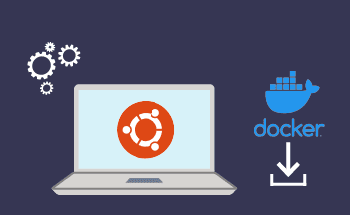Method to Accurately Locate VPN Server Locations
14:33, 18.06.2024
Technology is evolving, and so are the intricacies of cybersecurity threats that carry the chance of compromising privacy and security. VPN has long been a preventative measure against those types of threats. However, the true location of the server a VPN operates on can be crucial to the sufficiency of protection the virtual private network provides.
A VPN server is one of the aspects that provides online privacy and security for users through VPN services. In this instance, the server is used for routing your internet traffic that is being encrypted before the transmission.
When your online activity is transmitted through a VPN server, it masks your IP address under a different location. This aspect helps you to retain privacy, while also contributing to overcoming geographical content restrictions. Despite that, the true location of the VPN server is crucial in terms of determining the efficiency of the services provided.
In this article, we will explore how to find out the true location of the server of your virtual private network.
Mechanics of VPN Servers
We have already established that a VPN server is fundamental for securing user’s online activity. But how do VPN servers work?
Well, it all begins when a user starts running a VPN client, which, in turn, connects the user’s session to the server. After the connection is established, all traffic coming from the user’s activity will go through a virtual private network. The traffic then undergoes encryption through VPN protocols the server has. The encryption allows making the data unreadable to the internet service provider (ISP) and third parties.
For data to reach a website, and a web server before that, encrypted data goes through a VPN server, where it gets decrypted and forwarded. When a web server sends a response to the VPN server, the data gets encrypted again before going back to the user. Upon reaching the user’s device, a VPN server again decrypts the data. This results in decrypting the data and making it available and readable.
During this process, a VPN server also masks the user’s IP address and replaces it with a different one. It allows hiding the user’s geographical location and bypassing firewalls and local restrictions.
You can see that a lot depends on the VPN server, even more so on the server’s software. The server’s software is designed in a way to be able to multitask and manage the network and hardware, VPN protocols, and encryption and decryption.
VPN servers efficiently avoid unnecessary surveillance from the user’s ISP and protect them from potential cyber threats, making online activity private and secure.
Significance of Authentic VPN Server Locations
Now, why the true location of the VPN server is important?
First, the VPN server can fall subject to the local laws and regulations the VPN provider must follow.
Second, multiple server locations make it possible to bypass geographical restrictions. If you connect to the VPN server in a specific location, you get access to the content that might be unavailable in your place of residence.
Third, how far the physical server is located from the end user determines the speed of the connection. If the distance between the server and the user is considerable, one might experience high processing latency, which prevents a user from quickly accessing the web.
And last but not least, when the VPN locations are clearly stated one can actually know what to expect from the services they get. Knowing that your traffic is not attached to a place with intrusive privacy regulations can give you more peace.
Summing up, the true VPN server location can help you have a secure and enjoyable VPN experience.
Advantages to Identify True VPN Server Locations
Sometimes, a VPN provider states locations that don’t correspond with where the physical server resides. Such an approach is able to reap the users from the benefits of the VPN services.
When you opt for a VPN provider that offers transparency in terms of their server locations you get to:
- Know the speed of your connection, and latency metrics, which prevents delays of unknown origin.
- Rely on the guarantees that the VPN provider gives you and work with them (i.e., understanding what kind of access you have to content and resources).
- Trust in your choice of vendor, since VPN providers that state their server locations show their commitment to offering high-quality service.
Potential Drawbacks and Constraints
When it comes to the location of the VPN server, some drawbacks are also present, with the most prominent being legal restrictions.
VPN server location dictates what services can be available for the provider to offer and for users to utilize. Moreover, users’ privacy and activity can be exposed due the specific privacy laws. For example, certain privacy laws may force VPN providers to keep log activities, which compromises users’ privacy. This is not the case with most VPN providers, however legal jurisdiction associated with the localization of their business can still pose limitations to the services they provide.
And of course, a VPN provider that uses virtual locations instead of being transparent about the physical location of their servers can be viewed as untrustworthy; this will undoubtedly affect the prosperity of their business.
VPN is an excellent tool that ensures more privacy and security for the users, however, like anything else, it has some constraints.
Key Factors to Evaluate
In the process of evaluating the transparency of a VPN provider in terms of server locations, there are some factors to keep in mind.
First, the legal constraints of a specific location must be taken into consideration. Places with strict laws around data retention can expose the user’s activity and put their privacy at risk. It is important to use the services of a VPN provider that locates their servers in privacy-friendly regions.
The reliability and stability of the server infrastructure are also important to consider. Modern and powerful infrastructure solutions ensure better performance and reduced downtime; both of them impact the quality of the VPN services.
Whether the location of the server is virtual or actual plays a huge role. Knowing the server’s true location can provide better performance and more efficient IP address masking, resulting in a better user experience.
Keep these factors in mind when looking for and choosing a VPN provider and a VPN server to work with and work through.
Determine Actual VPN Server Locations
We already went through the reasons why the true VPN server location matters. Now, let’s dive into how to determine the actual server location.
The easiest thing you can do is use IP address locator websites. They can highlight the data like the city and the country of the VPN server associated with your IP address when you use VPN services. But in order to do that you need to identify your IP address first. Generally, VPN applications will show you the country you’re accessing the web from; you can find it in their interface. Then insert the IP address in the search bar at the IP address locator website. You can use WhatIsMyIP.com for that purpose. Then you can compare the location that the VPN provider claims the access is given from and the information on the location that the website gives you. Keep in mind, that the accuracy of the IP address identifying platforms can vary, and sometimes they won’t show you the exact city or get the city wrong. Thus, we recommend to use multiple platforms to avoid the confusion.
If you find that all the websites point to a different location, you need to critically evaluate the transparency of the VPN service.
In such cases, you can also use an online ping test, such as the one offered by ping.pe. By switching on your VPN and inserting your IP address, the platform will ping your IP from multiple locations, while generating ping times for each. Here, the lower the ping times, the closer the qeographical proximity is. This way the location of your IP to the lowest ping time may indicate the true location of the VPN server.
The bottom line is that knowing the location of your VPN server can give you insights into the vendor you’re using the VPN services from. Checking information through both IP locator websites and ping tests can give you a clear idea of where the VPN server is located. And, ultimately, this research is done with the purpose of enhancing your VPN experience.
How to Select a Trustworthy VPN Provider
The vast features that a VPN might have are great, but you should also focus on the transparency of the provider in terms of server locations. The more specific the information about the VPN server location is, the closer it is to reality.
Well-established and reliable VPN companies have a broad network of servers to ensure proximity to multiple user locations, thus reducing latency.
Here are some other aspects to consider when deciding upon your VPN provider:
- Security features. A reliable VPN provider offers various security features such as encryption protocols, leak protection, or a strict no-third-party policy.
- Your needs. You have to understand what you want to use a VPN for: web browsing, streaming, bypassing restrictions, or anything else. Keep in mind that different virtual private networks serve different purposes.
- Performance. See how your VPN impact your browsing speed. A high-quality VPN service will have minimal latency to provide a smooth browsing experience and internet connectivity.
- Support of multiple devices. It is a good choice to opt for a VPN that allows you to connect to the network from multiple devices to protect them.
- User-friendly interface. It is vital that the VPN has an intuitive interface to avoid any confusion regarding its use.
- Multiple payment options. A VPN provider that offers different payment options increases the chance of getting a refund if you do not like the service.
- Responsive customer support. The truth is the more reliable the vendor is the more it wants to help users to continue to use their services.
Conclusion
The location of the VPN server is more than just a formality; it impacts your privacy and security and user experience. Reliable VPN vendors offer transparency when it comes to server location, thus showing their commitment to providing quality services.
It’s not always all about speed and performance; often it is about open communication between the user and a provider. To keep yourself from investing in using the services that don’t live up to their statements, understand the nuances of the VPN server location to improve your privacy.
FAQ
How does the geographical placement of the VPN server influence internet speed?
Where the VPN server is placed hugely impacts the internet speed because of the physical distance. The further the server is from the location of the user, the further the traffic has to travel, which promotes increased latency and poor loading speed.
Can the location of the VPN server influence the accessibility of region-specific content?
Absolutely. The location of the VPN influences which content you can access. Some platforms restrict their content to certain locations. In such cases, connecting to the server in the permitted location can help you bypass the restrictions.
Which VPN server location is optimal for maintaining privacy and security?
The optimal VPN server location is one where there are strong privacy-focused laws. This will give you extra assurance that your data is not being shared with third parties. In this instance, make sure you check the policies of your VPN provider and the laws they have to adhere to in specific locations.
What methods can be employed to confirm the actual location of a VPN server?
You can confirm the VPN server location by using IP address locator websites and ping tests. It is most helpful to use those in combination.
What drawbacks might arise from utilizing VPN servers situated in particular locations?
Certain VPN locations have drawbacks. Some countries have data retention policies that force VPN providers to share user’s log activity, which can compromise your privacy.


